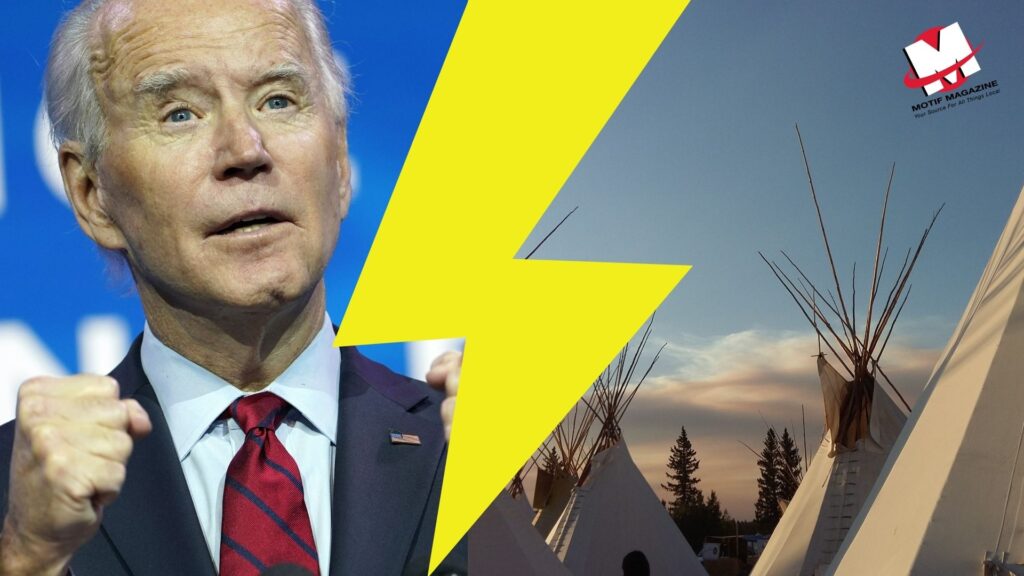
When Joe Biden announced his intention to remove all troops from Afghanistan by September 11, he made one critical error in what should have been a universal moment of relief. In describing the 20-year conflict in the Middle East as the longest in American history, the president swept under the rug centuries of ongoing and incessant wars against the nation’s Indigenous peoples. Whether by intent or, more likely, sheer unthinking accident, Biden’s comment serves to once more silence a critical narrative. As John Martin of the Oglala Lakota (South Dakota) bluntly put it: “Forgetting us is normal — it’s what settlers do.”
Since 1776, there has not been a single year in the history of the United States when the original inhabitants were not pulled, pushed and injured as collateral damage in the country’s turbulent and aggressive growth to nationhood. The Beaver Wars, the Plain Indian Wars, the Apache Wars, King Philip’s War, the Sixty Years’ War and so many more all directly involved, sucked-in and spat out Indigenous cultures from New York to New Mexico. This is not to list damages and abuses, but to construct a platform to articulate, yet again, the tendency for even the most well-intentioned American to forget the Indian Wars, or to set them aside as an unfortunate part of the greater good.
Avery Red Cloud from Pine Ridge, South Dakota, is an Oglala Lakota artist and historian. A direct descendant of Maȟpíya Lúta, the Red Cloud war leader of 19th century fame, Avery is well positioned to understand the impact of the Indian Wars on Indigenous peoples, and the continuing legacy it brings.
“Maybe Biden doesn’t know…” he muses, “or maybe he doesn’t even think it was a war. Rather, [those in power] sweep across and cancel cultures without trying to even understand.
“But this, what has happened to us, wasn’t even a war — they tactically took our tribes out down the line. Not one single tribe would have done these horrific acts to their neighbors. Us Lakota put up a fight. That’s why they really hate us and have been pushing down harder on us all these years.”
Avery’s feelings on anti-Lakota prejudice certainly ring true. Pine Ridge, an almost exclusively Lakota reservation, remains the poorest corner of the nation. It has been subject to uranium poisoning in the water, municipal support from the state is essentially non-existent, alcoholism and drug abuse are at critical levels, unemployment is staggering, and self-harm so prevalent that a former Oglala Sioux Tribe President, Theresa Two Bulls, described the reservation as being gripped by a “suicide state of emergency.”
“It’s time those in Washington start to honor our culture and learn and teach about us natives in a right manner. Help build our people back up. We are humble and are not trying to be rich and rule the world. We just know that everyone is equal.”
But equality is a dream long held and never realized by those striking the balance between Indian Country and colonial America. Xochitl Laur is a Providence-based, Arizona-born member of the Diné nation, and the tiredness in her response is evident.
“It’s not surprising,” comments Laur, taking time out of her birthday celebrations to address another mistake at the top. “Their war against Indigenous people has been a secret one, they never have and never will admit that the US has spent centuries trying to eradicate Indigenous people for their land, resources and knowledge. Why would we ever expect this administration to be different, because he has Indigenous cabinet members [Deb Haaland]? That’s a small olive branch; though a great step for us, our voices are still being dampened.”
Michele Bruyere, Cree, is a traditional drummer, singer, storyteller and educator. He is also a rockstar (although you’d never know it from his humble demeanor), playing the kit for one of Indian Country’s biggest and longest standing stars, Buffy Sainte-Marie. Bruyere also has a skeptical eye on the Biden administration and the inclusion of Haaland.
“Halaand speaks about government ‘units’ to deal with issues in Indian Country. ‘Unit,’”… Bruyere screws up his face, “why not fix [government established] band councils? Tribal councils are not good for Indigenous peoples, a different kind of greed brews. Control our matters properly and in the traditional way, that’s what we need.”
I ask Bruyere whether this secret, ongoing war against Indigenous people will ever change, and what the goal is in Indian Country to make it happen.
“Great question. I asked the same to all my elders and they tell me, ‘Live and navigate your way well in this world.’”
Laur seems to share his pessimism. She said, “[Government] can’t be honest because it would completely change history. It would cause a lot of turmoil and upheaval if they admitted that their end game was and is to eradicate the Indigenous people for gain.”
Maybe Biden was trapped by the constructs of what brought him to power in the first place. To acknowledge the Indian Wars is to acknowledge a greater tragedy, and that would require a lot of complex conversation that few in power seem ready to have.



